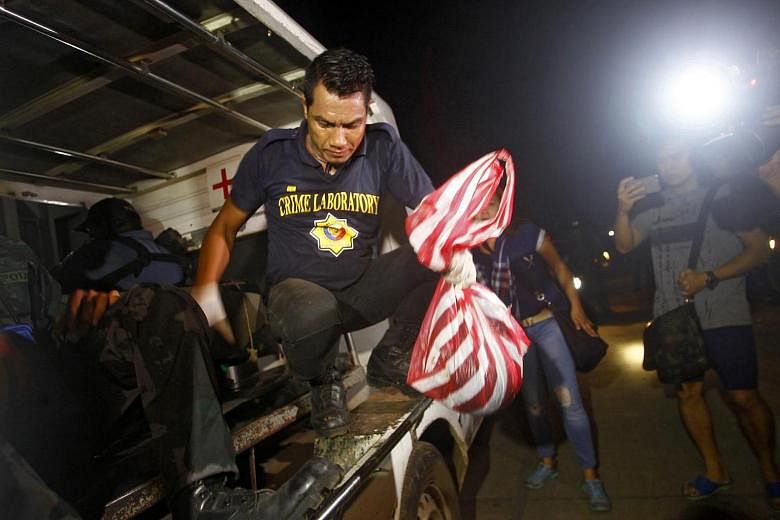MANILA - The Philippines confirmed early on Tuesday (June 14) that a brutal group of Islamist militants had beheaded another Canadian they had held hostage for nearly nine months.
In a statement, President Benigno Aquino's spokesman Herminio Coloma said: "We strongly condemn the brutal and senseless murder of Mr Robert Hall, a Canadian..."
"We truly regret that our people's cherished tradition of extending gracious hospitality toward foreign nationals has been marred by a small band of criminals whose despicable actions have been abetted by the extortion of ransom from their previous victims," Mr Coloma added.
Major Filemon Tan, spokesman of the military's Western Mindanao Command, said, meanwhile, a severed head "believed to be that of... Robert Hall" was recovered near the Jolo cathedral in Sulu province, some 1,000km south of the capital Manila, at 8.45pm on Monday (June 13).
"The discovery confirms the brutal beheading by the evil criminal (Abu Sayyaf Group) of a kidnap victim," said Major Tan.
He added: "The brutal murder and inhuman execution of the victim by these evil terrorists shows their true colour… Their criminal act disregarded even the sacred period of Ramadan."
Mr Hall, 51, another Canadian John Ridsdel, Norwegian resort manager Kjartan Sekkingstad, 57, and a Filipina, Ms Maritess Flor, 41, were taken on Sept 21 last year (2015) by the Abu Sayyaf from the Holiday Oceanview Samal resort on Samal island, in Davao province.
The militants had demanded 600 million pesos (S$18 million) in ransom for Mr Hall and Mr Sekkingstad, whose fate remains unknown.
Mr Ridsdel, 68, a former mining executive and journalist, was beheaded on April 25.
Last week, the Abu Sayyaf freed four Malaysian sailors more than two months after they were abducted off Borneo island.
Fourteen Indonesians kidnapped by the group were released last month.
The Abu Sayyaf, whose chieftain Isnilon Hapilon has been recognised by the Islamic State in Iraq and Syria (ISIS) as a council leader, is known for extortion, kidnappings, beheadings and bombings.
It was formed by disgruntled Moro Islamic fighters in 1991, with Al-Qaeda funding.
Efforts to hunt down heavily armed, well-stocked and mobile groups of Abu Sayyaf bandits with a network of checkpoints and battalions of soldiers have proven to be ineffective - and even fatal for both troops and hostages - in the past.
The only operation that led to some measure of success was in 2002, when US-backed Philippine special forces units ambushed a group of bandits holding American missionaries Martin and Gracia Burnham, and Filipino nurse Ediborah Yap.
Mrs Burnham was rescued, but her husband and Ms Yap were killed in the ensuing crossfire.
In most cases, hostages were released after payment of millions worth of ransom.
One of the Abu Sayyaf's biggest recent windfalls is believed to have come in 2014 when it claimed to have been paid more than US$5 million (S$6.7 million) for the release of German physician Stefan Okonek, 71, and his companion Henrike Dielen, 55, abducted from their yacht.


